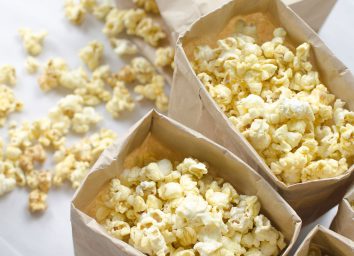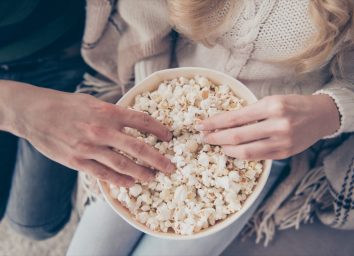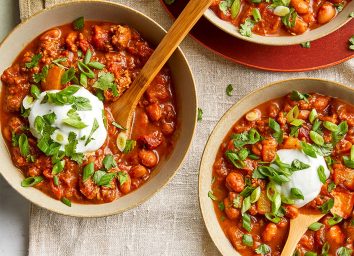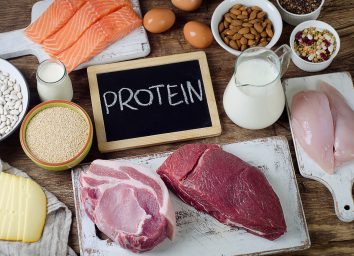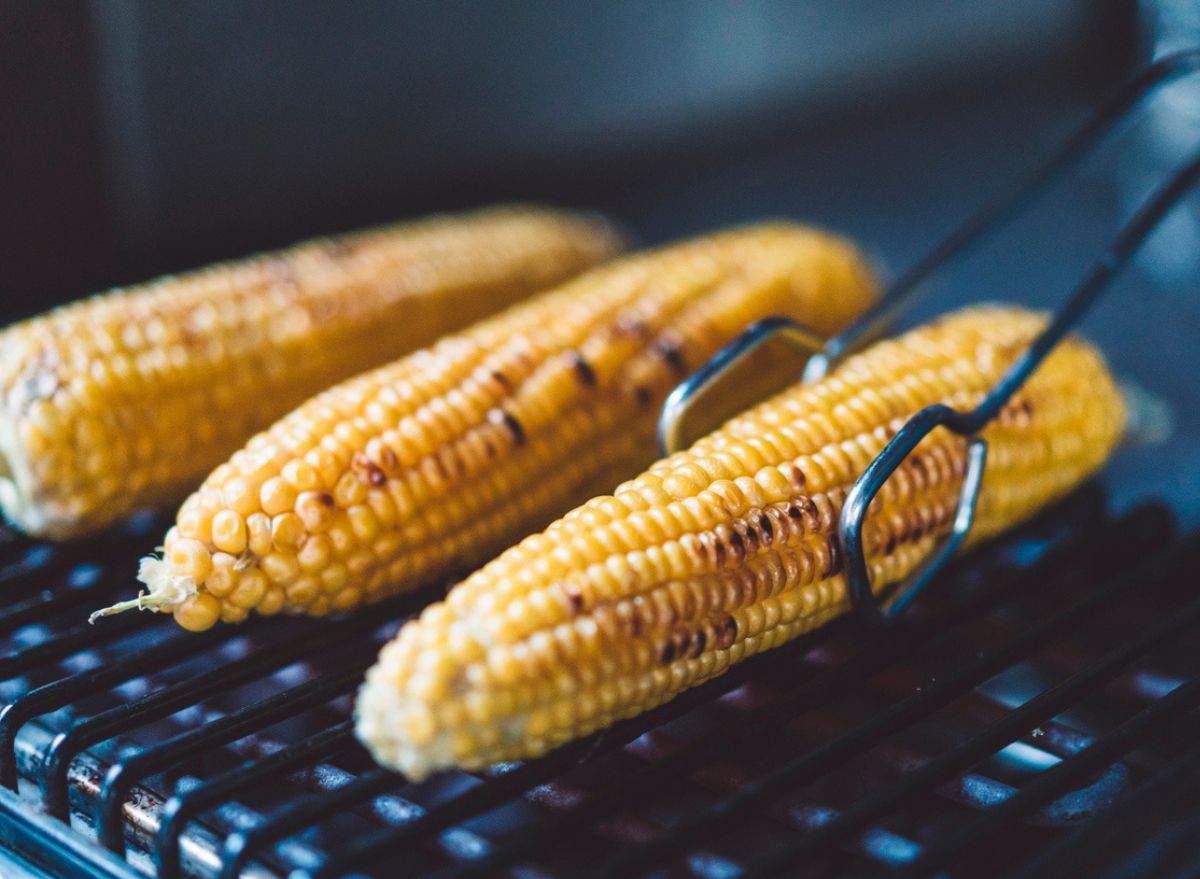
With all of the 4th of July parties happening, you can safely assume that corn will be on the menu at whichever barbecue you decide to attend. Whether it's served on the cob, in a salad, as popcorn, or mixed up into a dip, corn will certainly find its way into multiple dishes during this summer season. But what happens to your body when you eat corn, and are there any negative side effects associated with this popular vegetable?
For starters, let's look at the basic nutrition facts for regular corn. In one large ear of yellow corn, you'll consume:
- 123 calories
- 4.7 grams of protein
- 1.9 grams of fat
- 26.7 grams of carbohydrates
- 2.9 grams of fiber
- 8.9 grams of sugar
Along with these main nutrients, corn also contains vitamins, minerals, and plant compounds, some of which can contribute to your recommended daily value of micronutrients.
Here's what you need to know about what happens to your body when you eat corn, and for even more healthy tips, be sure to check out our list of the 9 Healthiest Foods You Should Eat Every Day.
You'll get a boost of important minerals.
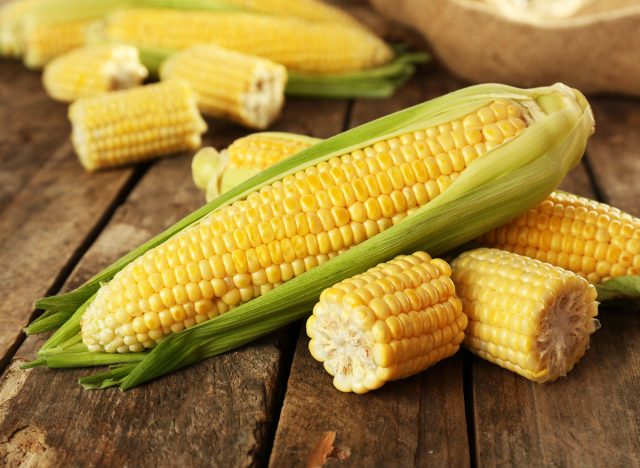
If you're planning on throwing some corn on the grill this July 4th, know that you'll also be getting a boost of minerals with every bite.
For instance, yellow corn provides potassium, a mineral that has been known to help lower blood pressure levels, maintain strong bones, and prevent kidney stones.
You will consume helpful antioxidants.
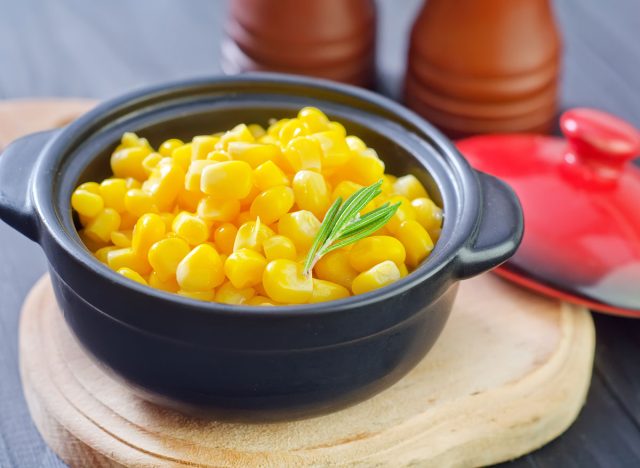
All fruits and vegetables contain plant compounds, many of which are pigments that provide color to produce and can also do wonders for your health. Two common compounds that are found in corn, known as lutein and zeaxanthin, are what give yellow corn its rich color, and they are crucial for the health of your eyes and vision.
According to a report published in Nutrients, these two compounds are the main pigments found in your retina, and they are necessary for protecting your eyes from blue light. Not only do they protect from blue light damage, but they have been found to help with age-related issues like cataracts and macular degeneration.
So, do your eyes a favor this summer and make sure you load up on grilled corn at the next barbecue.
Corn, especially popcorn, can help you stay full longer.
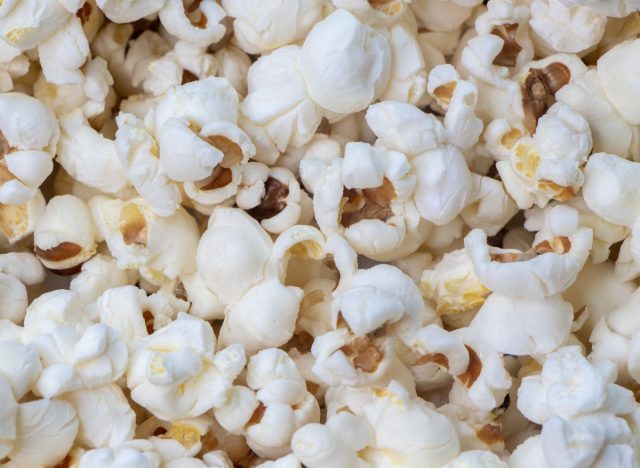
If you're in need of a healthy snack that can tide you over until your next meal, you can always try enjoying corn in popped form.
High in fiber and low in calories, popcorn is an all-time favorite snack for many. Popcorn, especially homemade or air-popped, is a low-calorie, nutrient-dense snack that has been shown to keep you full longer. Choose homemade kernels and pop in olive oil for the healthiest snack option.
And thankfully, research also backs up popcorn as a healthy snack. According to the journal Antioxidants, popcorn still contains the plant compounds and helpful antioxidants found in whole corn.
Corn contains multiple B vitamins.
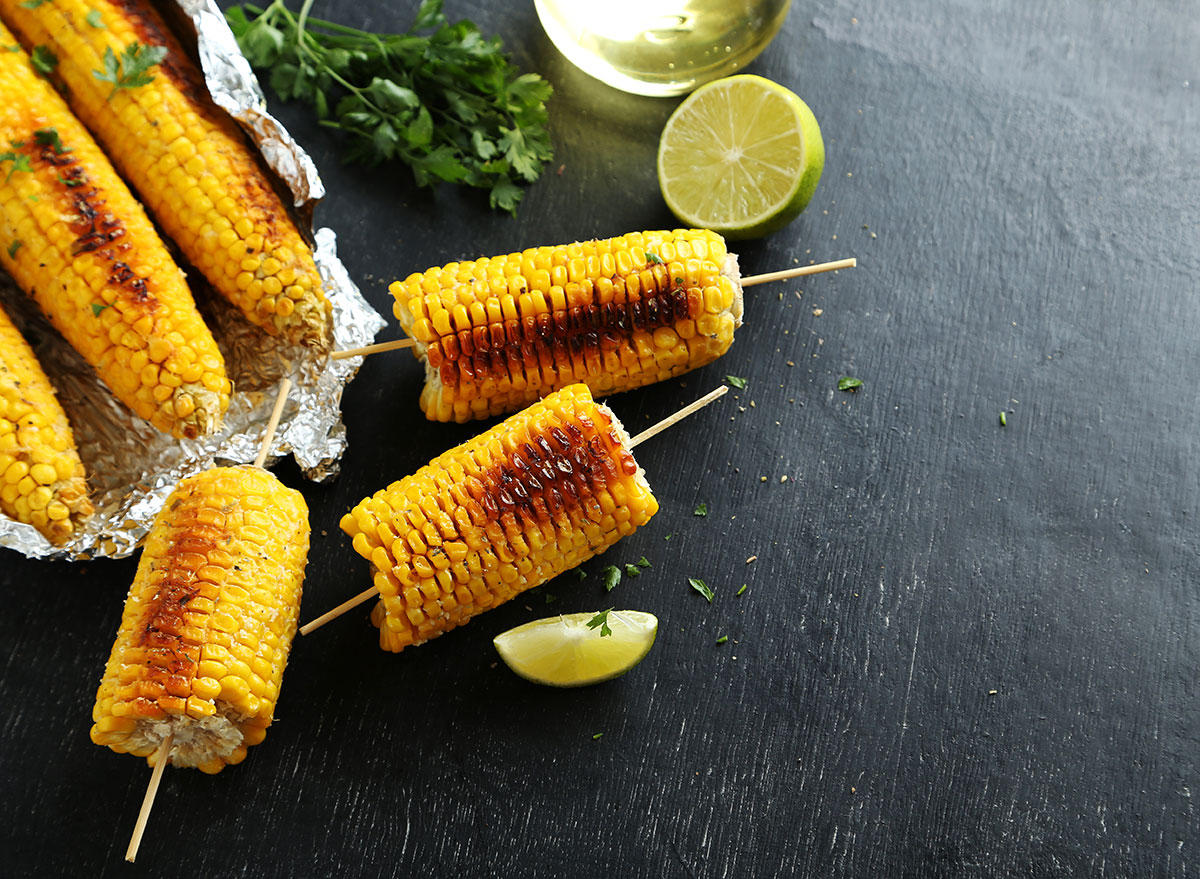
Corn is high in vitamin B6 and vitamin B9—two major vitamins that play a role in energy metabolism and other important functions in the body. It also contains other B vitamins in smaller levels, such as pantothenic acid (vitamin B5).
According to the Cleveland Clinic, there are eight B vitamins that help your body convert carbohydrates into fuel (or energy). Specifically, B9 (also known as folate) is known to help with healthy liver, skin, and hair, while also helping to keep your nervous system at a healthy functioning level. Vitamin B6, on the other hand, is one of the B vitamins known for aiding in cognitive function.
Corn can also give you a helpful dose of niacin, also known as vitamin B3. This B vitamin is linked to things like healthy skin, better digestion, and digestive health. It is recommended that the average adult get about 16 milligrams of niacin per day, and one ear of corn provides approximately 2.5 milligrams, making it a modest way of adding to your daily value.
You definitely won't meet your daily recommended value of these B vitamins with just one serving of corn, but it's nice to know that chowing down on some corn on the cob this summer can help you get one step closer.
In some people with IBS, corn may trigger symptoms.
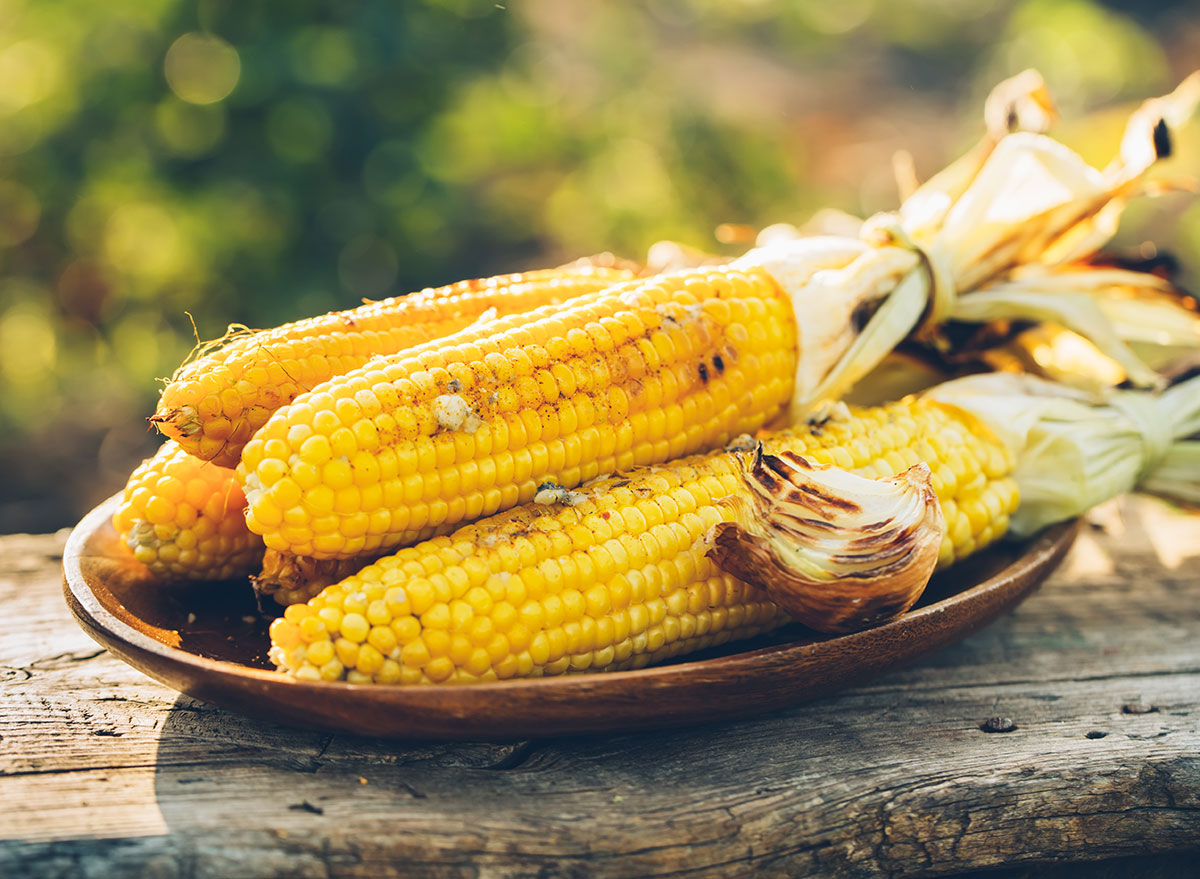
Irritable Bowel Syndrome (IBS)—which is an uncomfortable disorder that affects your gastrointestinal tract—can be directly impacted by the food and drinks you consume. And for some people with IBS, corn has been found to actually trigger and worsen symptoms.
A report published in the Journal of Nurse Practitioners states that among all of the foods linked to worsening IBS symptoms, some of the most common include bananas, citrus fruits, onions, potatoes, certain dairy products, and grains like wheat, oat, barley, and corn.
This isn't to say that you have to completely remove corn from your diet, but if you have IBS, try paying close attention to how your stomach feels the next time you eat something that contains corn.
Corn syrup can increase levels of inflammation.
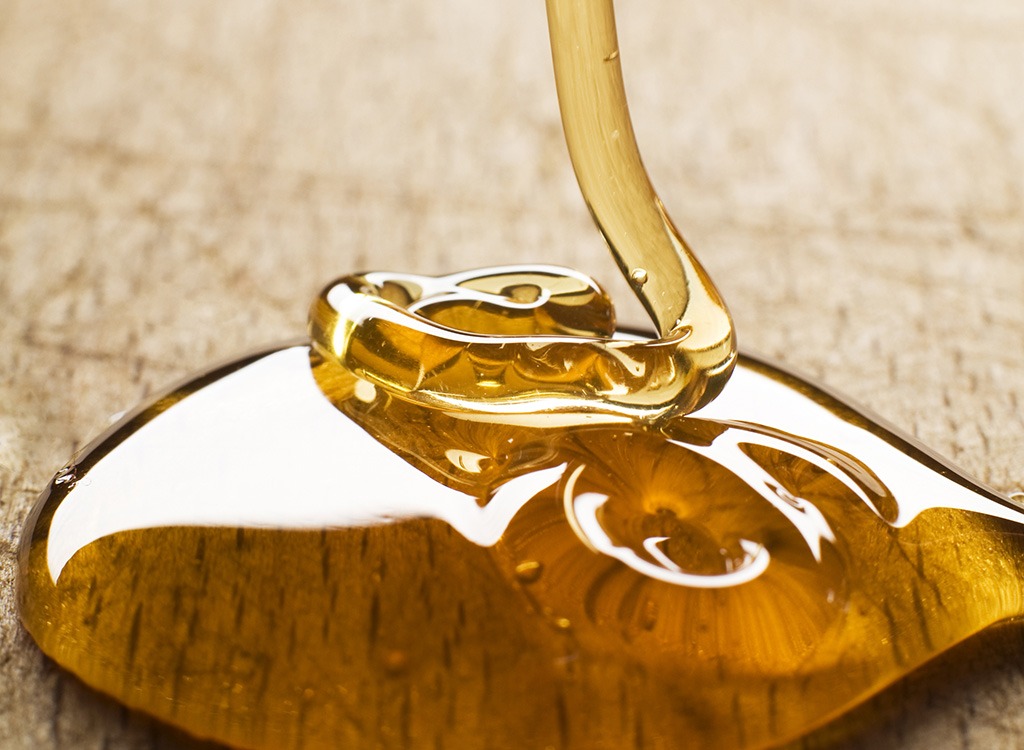
Corn kernels can be processed in order to make corn syrup, but unfortunately, this product doesn't come with the same health benefits as whole corn.
Processed corn has been stripped of its nutrients and left with only sugar or oil. High fructose corn syrup has quickly become a commodity in the food industry and has been widely documented as a correlate for many chronic diseases like diabetes, liver disease, and heart disease. Corn oil is high in polyunsaturated oils that tend to raise inflammatory markers when compared to monounsaturated oils.
A previous version of this article was originally published on April 8, 2021. It has been updated with new entries and fact-checked.
- Source: https://fdc.nal.usda.gov/fdc-app.html#/food-details/169998/nutrients
- Source: https://pubmed.ncbi.nlm.nih.gov/24345983/
- Source: https://www.sciencedirect.com/science/article/abs/pii/S1530891X20393654?casa_token=2RfZYFcLvzQAAAAA:kWKXUh_kKZYFReB5GKTnbKGZ1lpKuGhQ_ycQ6ml33aea9d3XHJC2SEKh_lxalTAtsCbniFnGlQ
- Source: https://journals.lww.com/cjasn/pages/articleviewer.aspx?year=2016&issue=10000&article=00017&type=Fulltext
- Source: https://www.mdpi.com/2072-6643/5/4/1169
- Source: https://www.ncbi.nlm.nih.gov/pmc/articles/PMC6356482/
- Source: https://health.clevelandclinic.org/vitamin-b9/
- Source: https://ods.od.nih.gov/factsheets/VitaminB6-Consumer/#:~:text=Vitamin%20B6%20is%20a%20vitamin,as%20well%20as%20immune%20function.
- Source: https://www.mayoclinic.org/drugs-supplements-niacin/art-20364984#:~:text=It%20helps%20keep%20your%20nervous,meat%2C%20tortillas%20and%20cereal%20grains.
- Source: https://www.npjournal.org/article/S1555-4155(15)01191-5/fulltext
- Source: https://www.ncbi.nlm.nih.gov/pmc/articles/PMC5490528/
- Source: https://pubmed.ncbi.nlm.nih.gov/18408140/

